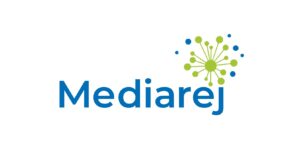

MEDIAREJ: Training in Mediation and Restorative Justice
Program: Erasmus+ KA204
Year: 2020 – 2023
Budget: 306.358€
Objectives:
- Fostering competencies in Restorative Justice (RJ) in different target groups by disseminating the RJ methodology thanks to training courses and multiplier events;
- Developing a standardised competences framework, a course curriculum for training, original methods and new toolkits starting from the RJ methodology;
- Providing training for 28 mediators, trainers and professionals under the supervision of the EFRJ (5-day Joint Staff Training event in Croatia) on RJ methodologies, after having involved about 50 other trainers in the piloting of the training modules within the Training Programme;
- Raising awareness on RJ for other target groups at a local level through 4 dissemination events in Italy, Spain, Croatia, Romania, as well as 2 final conferences to be organised in Triest and in Brussels;
- Empowering staff and strengthening the operational capacity of local RJ centres, creating a permanent expert group of trainers at European level
and a network among organisations from different partner countries and preparing the ground for opening new centres;
Our Role: Partner
Project partners:
Institute Jacques Maritain (Italy)
European Forum For Restorative Justice (Belgium)
Association for Creative Social Work (Coratia)
Fundatia Professional (Romania)
Nathan Association (Italy)
Overview:
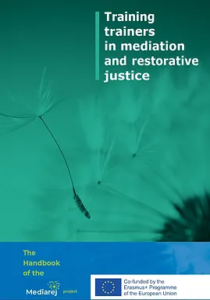
1.- HANDBOOK ON TRAINING TRAINERS IN MEDIATION AND RESTORATIVE JUSTICE
The handbook includes a literature review on the state of the arts about “training trainers on restorative justice”, a consultation process with experts, some recommendations, and a toolkit for future restorative justice trainers. It is a very useful resource for everyone designing and developing training programmes for restorative justice trainers. In this handbook you can find information on:
Who are the restorative justice trainers?
What are their professional and training paths and their specific skills?
What characteristics do they have in practice, in terms of format and contents?
2.- TOOLKIT ACTIVITY SHEET COLLECTION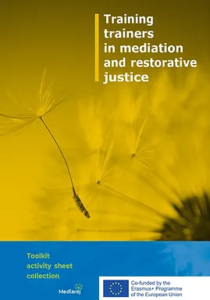
This resource is a working tool developed to support the training of trainers in restorative justice processes. (IO2). This toolkit is useful for:
Manage and supervise training activities
Organize in-depth thematic activities
Networking
Design of training courses
There are useful activities to organize:
An information section
A planning section
An accompanying section of the activity.
A support section for debriefing

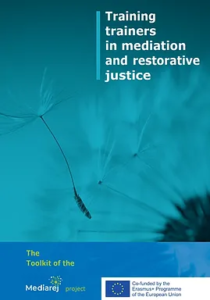 3.- TOOLKIT ON RESTORATIVE JUSTICE COMMUNITY PRACTICES
3.- TOOLKIT ON RESTORATIVE JUSTICE COMMUNITY PRACTICES
 This resource is a collection of articles that point out some of the areas where mediation and restorative justice can be applied and reflect the various backgrounds of their authors. They are not recipes but it offers a wide range of themes and approaches as conversation starters and material for critical reflection. The order in which the articles in this publication are arranged isn’t by any means the order in which they should be read: whenever you need an illustration or food for thought on your education, you can simply check out the article more appropriate for the participants and the settings of the workout you are preparing.
This resource is a collection of articles that point out some of the areas where mediation and restorative justice can be applied and reflect the various backgrounds of their authors. They are not recipes but it offers a wide range of themes and approaches as conversation starters and material for critical reflection. The order in which the articles in this publication are arranged isn’t by any means the order in which they should be read: whenever you need an illustration or food for thought on your education, you can simply check out the article more appropriate for the participants and the settings of the workout you are preparing.4.- COLLECTION OF SENSITIVE ZONES RELATED TO GENDER-BASED VIOLENCE 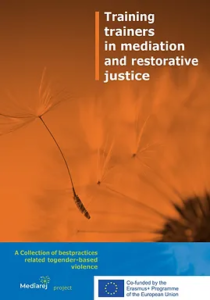
This Manual is to be used during the Train of Trainers (ToTs) together with the other previous Intellectual Outputs IO1, IO2, and IO3. It aims at bringing Restorative Justice in the context of Gender Based Violence, domestic violence, and the broader issue of violence against women.
Apart from the theoretical part concerning European documents referring to GBV and different approaches of the countries to RJ and GBV, types of gender-based violence, sensitive areas in an intercultural perspective, existing ethnographies, gender mainstreaming, and gender equality, a collection of forty-five case studies will be included in the manual.
5.- MULTIMEDIA TRAINING MATERIALS
Original short films, which mediation and restorative justice trainers can use as an interactive visual tool, to view its practical mode. Especially in the video are aspects of critical issues (small “mistakes”) in the conduct of mediation in order to enable trainees to critically reflect on aspects to keep in mind and to improve. These materials are avialable in Mediarej Platform and Mediarej Youtube Channel.
- Interview with Belinda Hopkins
- Interview with Anna Cattaneo
- Introduction to Humanistic Mediation
- Humanistic Mediation phase 1: theory
- Humanistic Mediation phase 2: crisis
- Humanistic Mediation phase 3: catharsis
- Videopills: Restorative Justice in times of COVID (Filippo Vanoncini)
- Videopills: Training and learning (Anna Cattaneo)
- Videopills: Reparative encounters (Guido Bertagna)
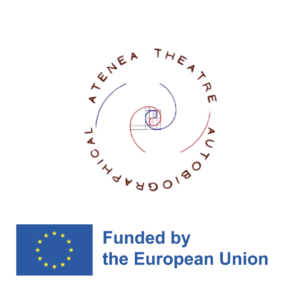
ATENEA: Autobiographical Theatre Fiction as Innovative Tool to Address Human Vulnerability
Program: Erasmus+ KA204
Year: 2020 – 2022
Budget: 159.135€
Objective:
- To promote social inclusion of adults in vulnerability conditions focused on the «Autobiographical Theatre»
- To transfer and spread out a good practice developed, tested and successfully applied by Àmbit, in Valencia, Spain.
- To foster European cooperation between different partners in adult learning through specific innovative pedagogical approaches
Our Role: Coordinator
Project partners:
ASOCIACION AMBIT (Spain)
ENRI (Lithuania)
Les Cultures (Itlay)
Euro-Med Youth Federation (EMYF) e. V.(Germany)
SOCIAL YOUTH DEVELOPMENT CIVIL NONPROFIT SOCIETY (Greece)
DRUSTVO ZA RAZVIJANJE PROSTOVOLJNEGA DELA NOVO MESTO (Slovenia)
Overview: ATENEA is based on the experience of theatre for mental health developed by Àmbit, and is intended to share the methodology of Autobiographical Theatre with an European consortium of organisations that work with other vulnerable groups.
Authobiographical Theatre is a methodology developed by Spanish playwright and actor Domingo Ferrandis, who worked for several years with a group of people with mental health from Àmbit association, and developed a method that plunged into the deepest trauma and stigma to emerge in the form of a theatrical piece that blended the individual experience and the collective soul.
After seeing the positive therapeutical effect in those who took part in the process, and after a couple of very successful shows in several theatres, we decided to share that methodology with organisations working with other vulnerable groups, developing together the methodology of Autobiographical Theatre: a set of guides, resources and dramatic tools available to society to use in vulnerable groups to repair the stigma so that its members recover their routines, hobbies and relationships. With «two objectives» the first, to accompany them in overcoming their stigma, and the second, the relationship with other people from other stigmatized groups.
ATENEA project was developed through a series of learning and training activities that took place in the different countries of the consortium, with the vulnerable groups from all the participating organisations would come together to put the methodology into practice and to develop an improved methodology, which is now available and open to the public.
Each one of the groups developed its own piece following this method, and performed it in their local commnity. The project ended with a faetival of Autobiographical Theatre held in Valencia, where all the groups met and performed.
The concept of “Autobiographical Theatre” consists of an original piece based on the contents of the author’s personal life (participating user), and the representation in front of an audience. The autobiographical or self-referential piece usually has a revealing aspect that shows personal contents and allows the author/authoress/actor/actress to aesthetically explore events in his life, express feelings such and make visible issues that concern and interest him/her. The pristine idea was aimed to reflect on the experience in a theatre training process with a group of people with disabilities, who were in vulnerable conditions and diversity. In today’s education, there are great challenges to answer adults’ educational needs who are searching for opportunities for learning. Educational models are sometimes thought from the methods and processes, but leave the beneficiary part aside, on which they affect changes and conditions that the environment provides.
TARGET GROUPS
ATENEA involves the following target groups:
- Women facing social and geographical obstacles;
- Long-term unemployed people;
- People with mental diseases;
- Asylum seekers/refugees; Women from disadvantaged neighbourhoods
- Adults former inmates in marginalized situations without and with addictions that lead to mental disorders.
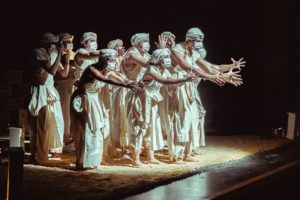
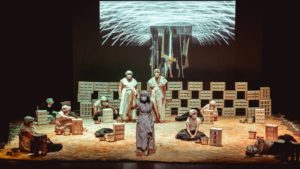
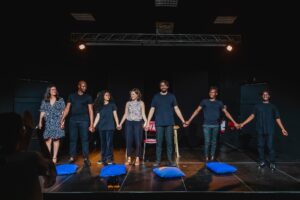
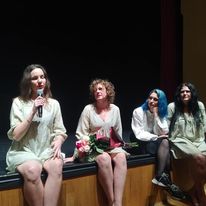
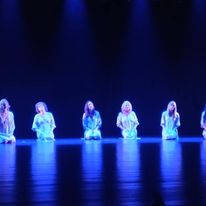
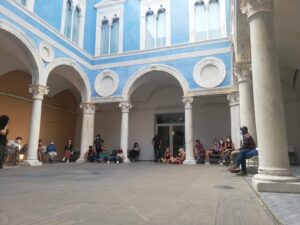
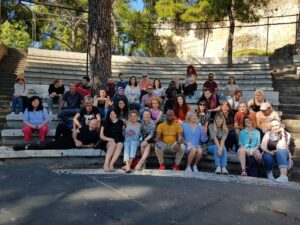
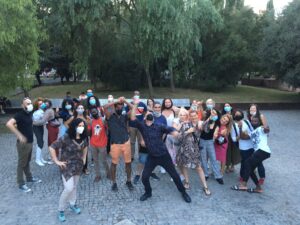
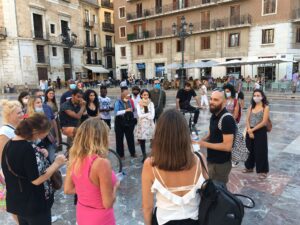
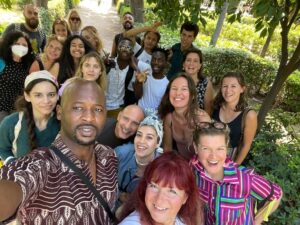

ITINERARIOS DE INSERCIÓN SOCIOLABORAL DE PERSONAS EN SITUACIÓN O RIESGO DE EXCLUSIÓN SOCIAL – TAILORED ITINERARIES FOR SOCIO OCUPATIONAL INTEGRATION OF VULNERABLE GROUPS
Program: European Social Fund (ESF+) Comunitat Valenciana 2021-2027
Year: Ongoing. Uninterrupted since 2020
Budget: 53.571,43€
Objective: Socio-ocupational integration of vulnerable groups
Overview: This project is based on design and implementation of socio-occupational itineraries tailored for each individual according to his/her skills, education, background and tastes.
Through a series of interviews and meetings, the team co-creates a tailored itinerary (designed in cooperation with the person who will follow it) aimed at improving his/her employability but also his/her social and soft skills, thus securing social, affective and economic stability.
Each itinerary is designed to address the needs of the accompanied person, and is composed of individual coaching sessions tackling personal needs and group courses meant to address needs that normally affect greater groups of vulnerable people (i.e. digital skills, soft skills for job interviews, etc.).
Our 5-year experience with this programme has allowed us to develop a tailored response to the needs of an everchanging and increasing digialised labour market, but also when it comes to addressing socio-cultural needs that are often ignored by other inegration programmes.
Over the years we have implemented tens of workshops and held hundreds of interviews and coaching sessions for over 200 people belonging to vulnerable groups (people with mental health issues, migrant population, long-term unemployed women, etc.) in the provinces of Valencia and Castellón .
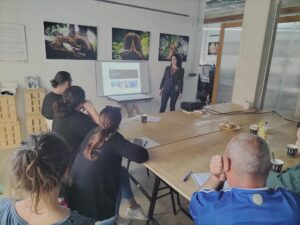
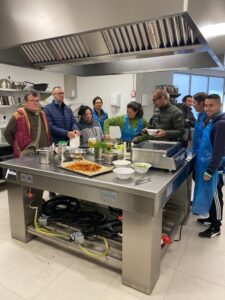
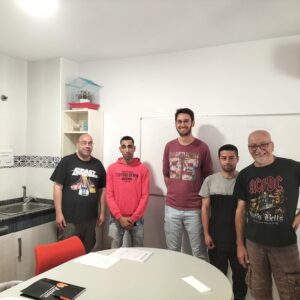
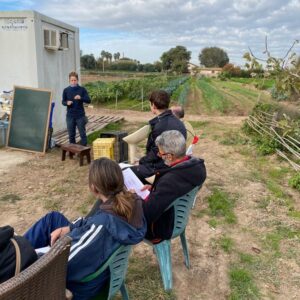
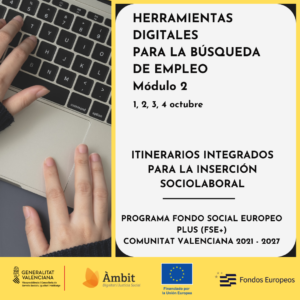
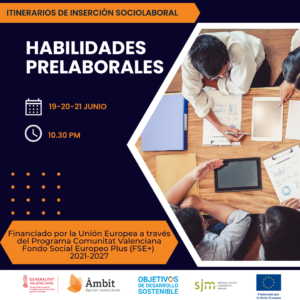
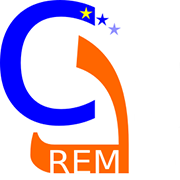

REM Project – Rights, duties, solidarity intends to promote intercultural dialogue and active citizenship.
Program: Erasmus+ KA204
Year: 2017 – 2019
Budget: 93.000 €
Objective:
Preventing violent radicalization and promoting democratic values, fundamental rights, intercultural understanding and active citizenship.
Improving the acquisition of social and civic competences and fostering knowledge, understanding and ownership of democratic values and fundamental rights
Fostering mutual understanding and respect among people with different ethnic or religious backgrounds, beliefs or convictions, by addressing stereotypes and promoting intercultural dialogue;
- Preventing radicalization in prison, in closed institutions and within society.
Our Role: Partner
Project partners:
CEIS Formazione (Italy)
CPIP (Romania)
CPIA (Italy)
Volkshochschule Im Landkreis Cham (Germany)
University of Insubria (Italy)
Overview:
Inspired by a project realized within the walls of Dozza’s prison in Bologna (IT) REM aims to prevent violent radicalization and to promote democratic values and fundamental rights. To do so the consortium has created a set of training modules for migrants that can facilitate dialogue and self-reflection about rights, duties and cultural differences.
Every partner planned and realized training modules for migrants in different social contexts, e.g. hosting communities, prisons, language courses and so on. The numeorus intellectual products designed by the project consortium includede a booklet open to all people interested sumirising the findings a providing a toolkit for preventing radicalisation.
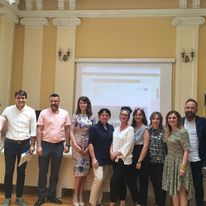
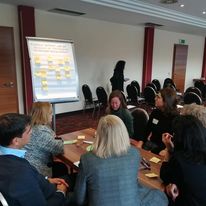
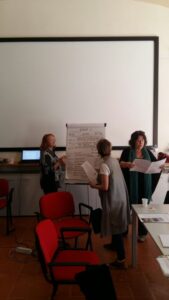
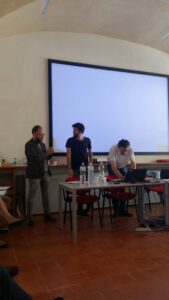
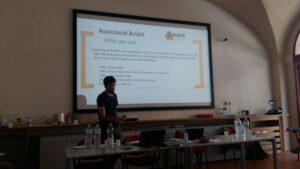
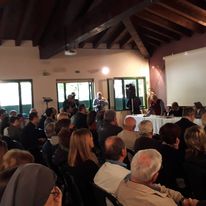
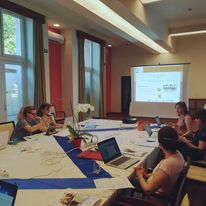
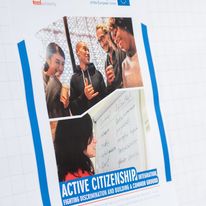
If you think that your organisation cound benefit from a collaboration with Àmbit, please contact
Enrique Sala (EU project manager) via email esala@associacioambit.org or via telephone +34 963119923